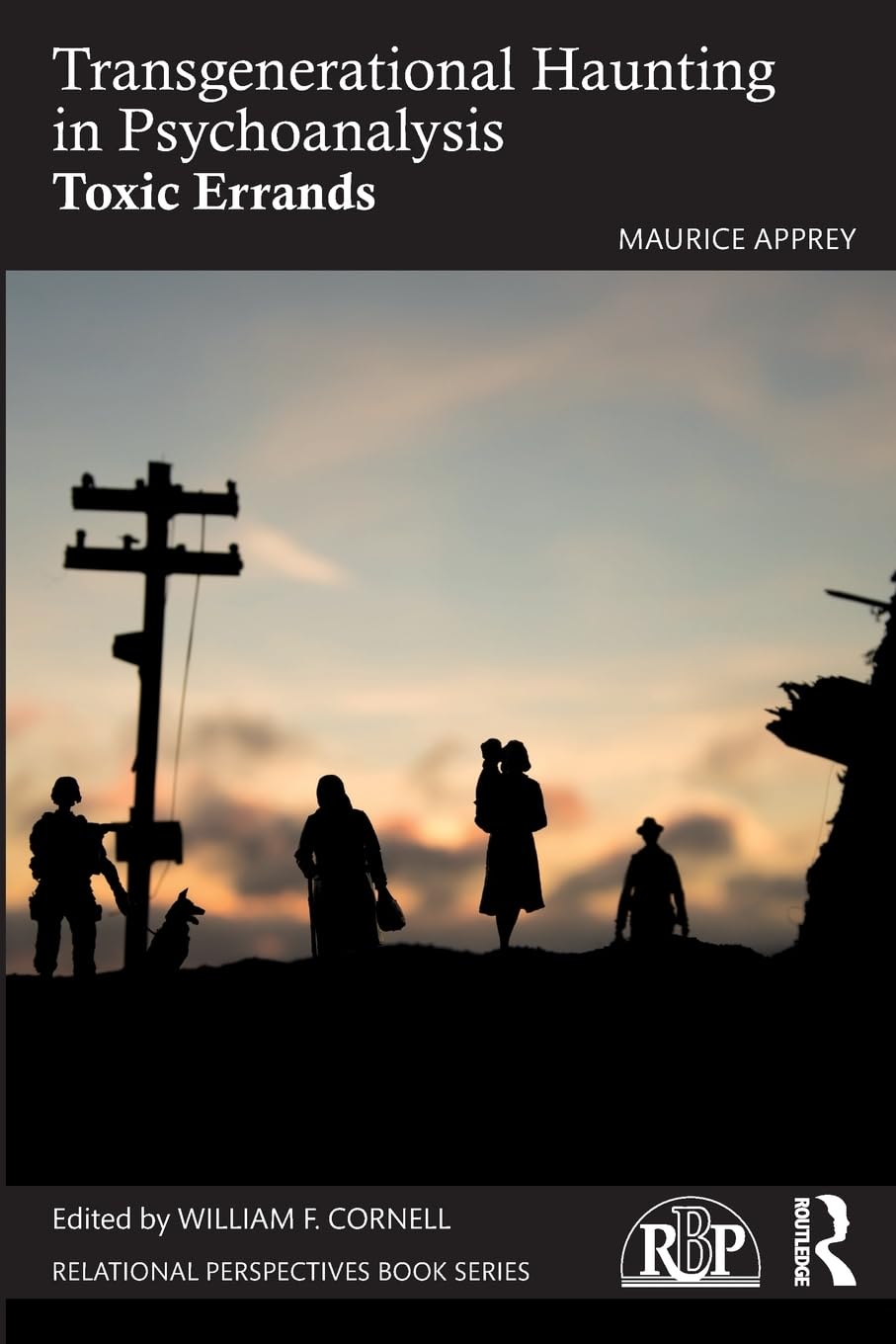Transgenerational Haunting in Psychoanalysis: Toxic Errands

Book Details
- Publisher : Routledge
- Published : 2023
- Cover : Paperback
- Pages : 236
- Category :
Psychoanalysis - Catalogue No : 97511
- ISBN 13 : 9781032484303
- ISBN 10 : 1032484306
Reviews and Endorsements
In this book, Maurice Apprey, a psychoanalyst for children, adolescents, and adults, describes how individuals have identifications with damaged parts of internalized images of parents and illustrates how individuals as well as ethnic, national, religious, and ideological groups are unwittingly possessed by historical events involving their ancestors. I consider Maurice Apprey as one of the most integrative thinkers for creating more knowledge about the concepts of trauma, the psychology of historical events and transgenerational haunting. This important book illustrates and teaches us more about the necessity and importance of psychoanalytic study of psychical transfer in transgenerational haunting.
Vamık Volkan, professor emeritus of Psychiatry, University of Virginia; president emeritus of International Dialogue Initiative and past president of the Virginia Psychoanalytic Society, Turkish-American Neuropsychiatric Society, International Society of Political Psychology and American College of Psychoanalysts
In this book, Apprey, a pioneer in the study of psychic phenomena expressing transgenerational transmissions of aggressivity, brilliantly shows the implications of such transmissibility for psychoanalytic theory and therapy. Taking Freud's instinct theory and reworking it into an object relations theory that can account for the temporality of psychic messaging, Apprey offers various strategies for conceptualizing how humans enact and make sense of history. Yet, of Apprey's dramatis personae, Freud is not the central character. Nor are the philosophers Husserl, Heidegger, Merleau-Ponty, Jean-Luc Marion, Claude Romano, et alia - all of whom Apprey mobilizes with total perspicacity. The main figure turns out to be Auden, whose celebrated 1937 poem, "On this Island" prompted Apprey to think through the seeming contradictions embedded in the poetic phrase: ships diverge on urgent voluntary errands. Under what conditions are errands voluntary? And, if errands are truly urgent, then what room is left for choice, the spontaneous? Auden's "errands" would orient Apprey, like the diverging ships in the poem, sending him on a multiplex psychoanalytic errand of his own.
Michael Uebel, a scholar who has taught literature, literary history and cultural theory at the University of Virginia, Georgetown University, and University of Kentucky, and clinical social work at the University of Texas, Austin

